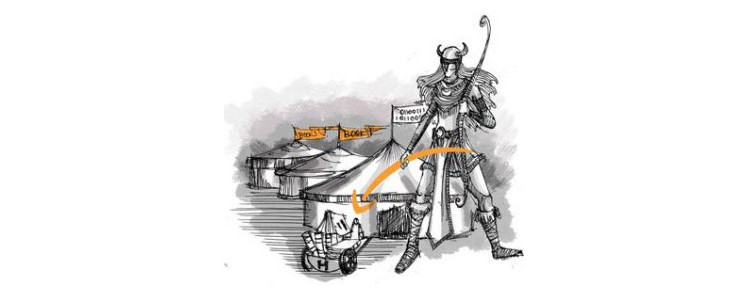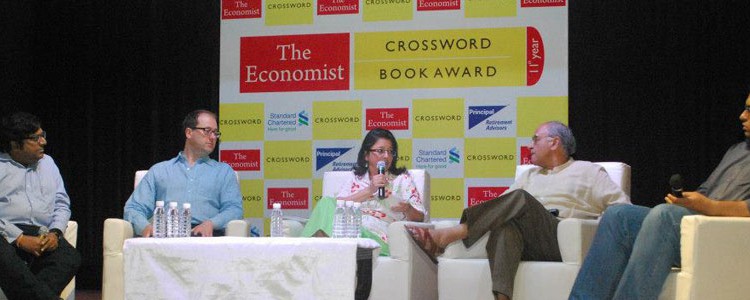JaipurBookMark ( JBM), 21-22 January 2015, Narain Niwas, Jaipur
The Jaipur BookMark 2015
Where South Asia meets the world
21-22 January 2015, Narain Niwas, Jaipur
(JBM 2015 will run for two days parallel with the Zee Jaipur Literature Festival on the 21 and 22 January)
Day 1: 21st January 2015
12:30 PM-INAUGURATION
Sanjoy Roy, Namita Gokhale, Oliver Moystad
1:30 PM-2:30 PM- INAUGURAL LUNCH hosted by NORLA
2:30 PM-3:30 PM- SESSION 1
IS PUBLISHING “UNBANKABLE”?
A business like no other, publishing finds it notoriously difficult to raise finance: a session on the business of publishing; discussing the structural issues concerning publishing, bank finance, volume and scalability etc.
Speakers: Dr Shubhada Rao, Henry Rosenbloom, Bikash Niyogi, Manas Saikia, Atiya Zaidi and Aditi Maheshwari
Moderator: Naresh Khanna
3.30 PM – 4.00 PM TEA
4:00 PM-5:00 PM-SESSION 2
DIGITAL PLATFORMS: THE UNTAPPED TERRITORIES
From social media to distribution, what should publishing professionals be aware of in their rapidly changing industry? Kindles, Kobos, iPads and audiobooks; what does all this new technology mean for the industry from writers to editors, marketers to consumers?
Speakers: Nicolas Idier, Niyam Bhushan, Rajiv Mehta, Ajit Baral and Vishal Anand
Moderator: Arpita Das
Session Supported by: NewsHunt
5.00PM – 6.00PM – SESSION 3
LIBRARIES AND ARCHIVES: TIME TRAVELERS EXTRAORDINAIRE
An IGNCA supported Open Forum, on the convergence of Libraries, Archives and Museums. With more access to information available online than ever before, regardless of location, what new role could and should libraries and archives play in making information accessible to all?
Speakers: Dipali Khanna, Alberto Manguel, Nicholson Baker, Dr. Venu Vasudevan and Shantanu Ganguly
Moderator: Bharti Sinha
Session supported by: Indira Gandhi National Centre for the Arts
6:00 PM-7:00 PM DRINKS
Day 2: 22nd January 2015
10.30AM TEA/COFFEE
10.45 AM – 11.30 AM – SESSION 1
WHO IS THE BOOK?
‘More than 48 printed pages and bound within 2 covers’, is that the book or is there more to it? On the changing format and technology of the book in an increasingly interactive environment.
Ralph Mollers in conversation with Sirish Rao; introduced by Ute Reimer-Boehner
11.30 AM- 12.30 PM – SESSION 2
RETHINKING TRANSLATION: RELOCATING THE CENTRE
How do we translate content across multi-media and digital borders including e-books, audio books, graphic texts and cross-media conversions?
Speakers: Vera Michalski, Satti Khanna, Mahua Mitra, Rick Simonson, Shona Martyn and Manasi Subramaniam
Moderator: Renuka Chatterjee
12.30 PM-1.30 PM SESSION 3
SOUTH-SOUTH COLLABORATIONS: A CONVERSATION WITH AUSTRALIAN PUBLISHERS
Increasingly, publishers in the global south are beginning to work directly with each other; literary festivals and bookfairs in southern countries are now choosing to focus also on southern authors. In a free ranging conversation, Australian publishers and literary entrepreneurs talk about new collaborations and new relationships.
Speakers: Ivor Indyk, Terri-Ann White, David Ryding, Kate McCormack, Wendy Were and Meredith Curnow
Moderator: Urvashi Butalia
1.30 PM-2.30 PM LUNCH
2.30 PM-3.30 PM SESSION 4
CONTENT IS QUEEN
The book is no longer just a book–it is now a basis for film, video games, interactive reading, collective writing and so much more. With book formats morphing and mutating how will content adapt to survive?
Speakers: Amish Tripathi, Ashwin Sanghi, Prasoon Joshi, Sandip Sen and Renu Kaul
Moderator: Karthika V.K.
3.30 PM-4.00 PM TEA
4.00 PM – 5.00PM-SESSION 5
TOWARDS A NATIONAL READING POLICY
A viable reading policy involves encouraging reading, creating an infrastructure to make books available and finally providing books. What role can States and private actors play to overcome the gap between policies and their implementation?
Speakers: Oliver Moystad, M A Sikandar, Prof. Apoorvanand and Prof. Avdhesh Kumar Singh
Moderator: Manisha Chaudhry
Session supported by: National Book Trust
5 PM CLOSING CEREMONY
6 PM-7 PM DRINKS (those who wish to leave for DSC South Asian Literature prize at Diggi Palace may proceed)
Participants are free to network in the Rights Chaupal.
To register, please visit the Jaipur Literature Festival website at: http://jaipurliteraturefestival.org/registration/jaipur-bookmark-registration
and click on the Register button.
Registration would include delegate status for the ZEE Jaipur Literature Festival specified to the date.
Rs 3,500/- per day or Rs 6,000/- for two days per person
For further queries, please contact: jaipurbookmark@teamworkarts.com





